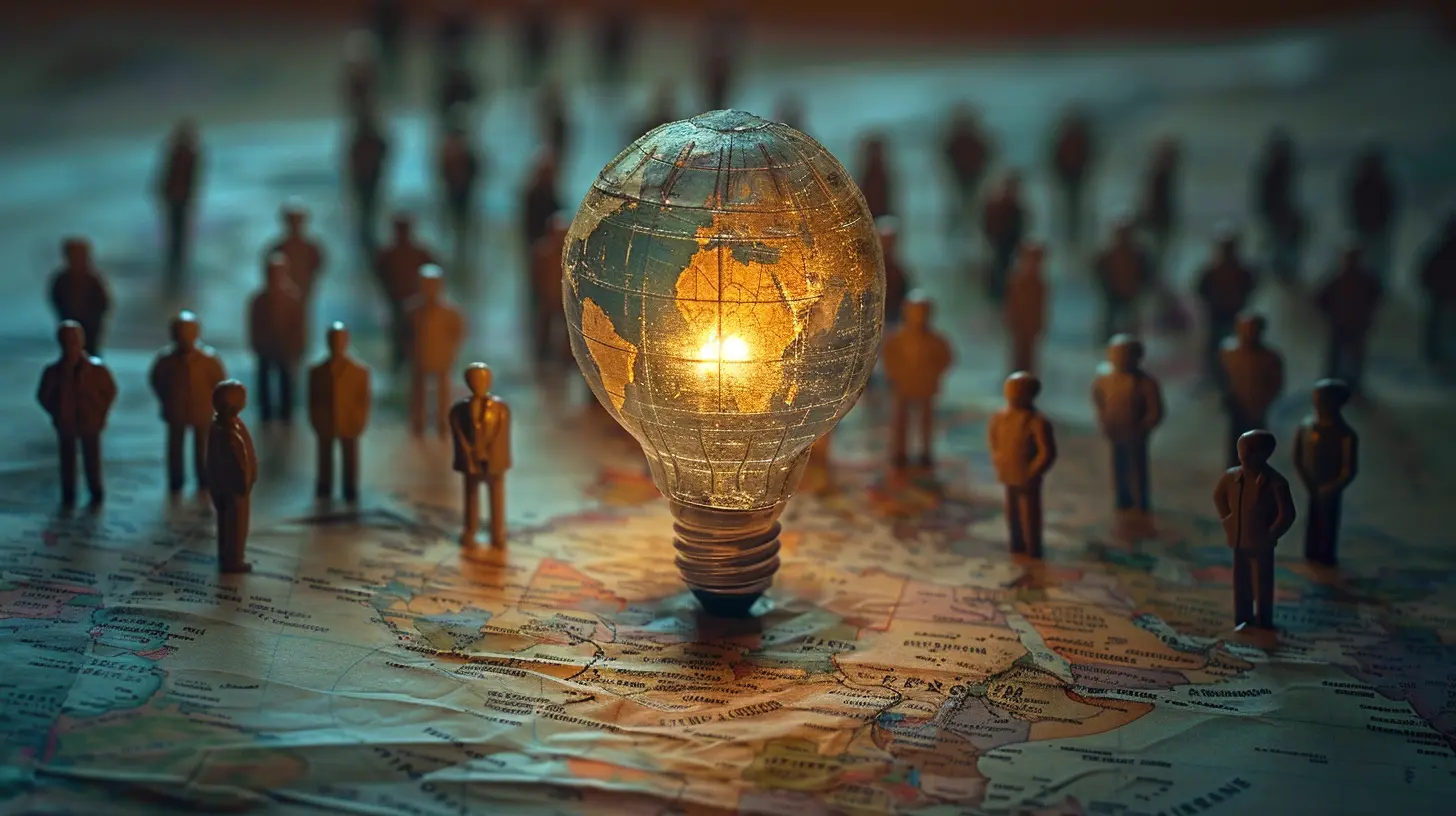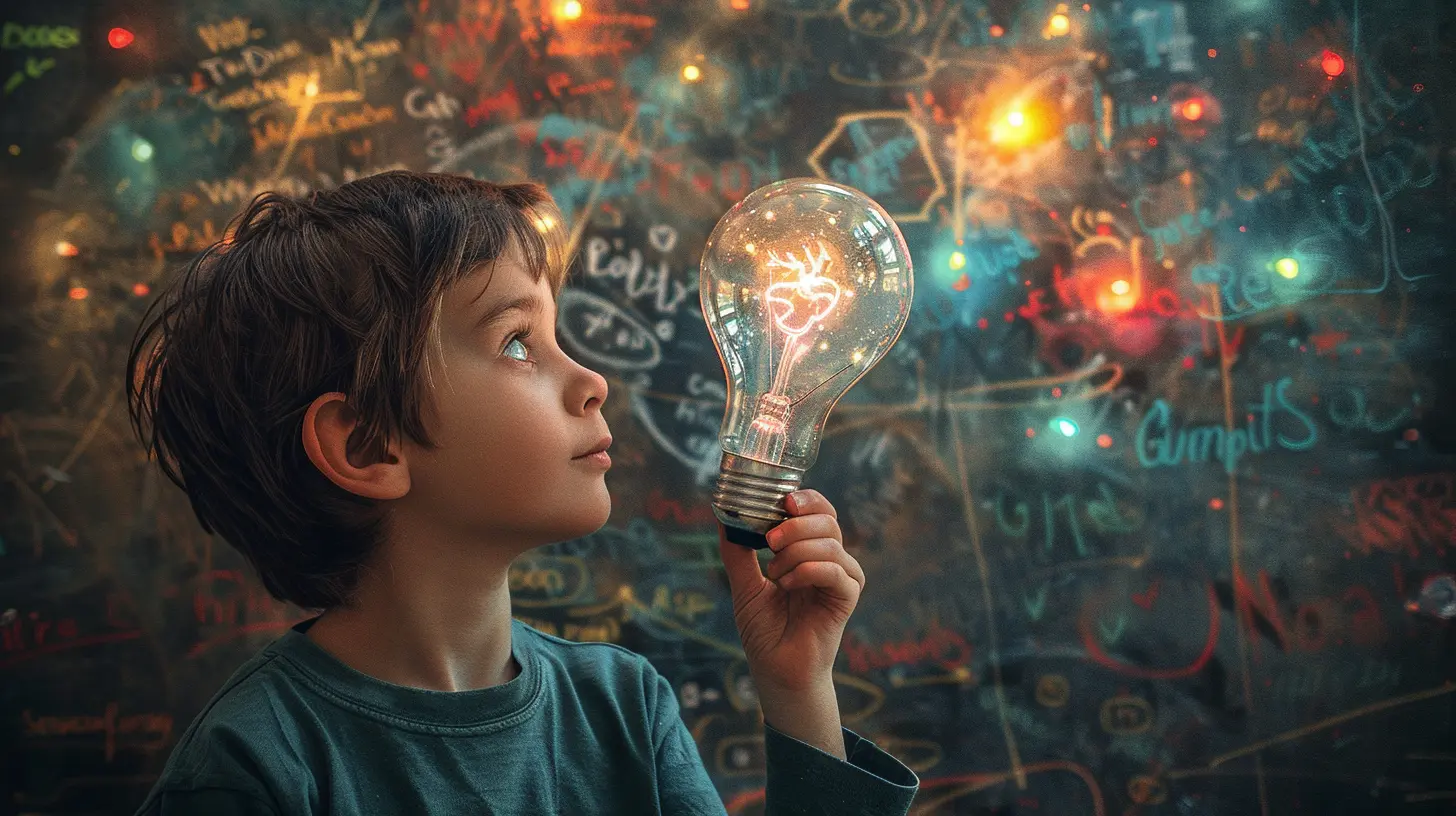Why Critical Thinking is Essential for Global Citizenship
29 August 2025
In today’s fast-paced, hyper-connected world, understanding what’s happening on a global scale is important—but knowing how to think critically about it? That’s essential. Whether you're scrolling through social media, watching the news, or just chatting with a friend from another country, being able to think deeper, ask the right questions, and sift through the fluff makes all the difference.
Let’s dive into why critical thinking isn’t just a buzzword, but a necessary skill if you want to be a truly responsible and impactful global citizen.
What Is Critical Thinking, Really?
Before we go any further, let’s get on the same page. Critical thinking isn’t about being critical of everything (though questioning things helps). It’s about:- Analyzing information objectively
- Evaluating arguments and claims with evidence
- Recognizing bias and assumptions
- Making reasoned, well-thought-out decisions
In short, it’s the mental toolkit that helps you separate fact from fiction, choice from chance, and truth from trend.
Who Is a Global Citizen?
A global citizen is someone who doesn't just live in the world—but connects with it. It’s not about hopping on a plane every weekend or speaking five languages. It’s about understanding global issues, respecting cultural diversity, and playing an active role in building a better world, no matter where you are.Think of it this way: if the world were a giant neighborhood, being a global citizen is like being a good neighbor. You don’t just stay in your house—you check in, lend a hand, and do your part to keep the peace.
Why the World Needs Critical Thinkers Now More Than Ever
1. 🌍 Navigating the Information Avalanche
Let’s face it, we’re drowning in information. Newsfeeds. Tweets. Ads. Memes. Opinions.With so much being thrown at us every second, how can we tell what’s real from what’s not? Critical thinking acts like a filter. It helps you sift through the "infodemic"—yes, that’s a thing—so you’re not just informed, but well-informed.
Without it, you're like a ship without a compass, drifting through a sea of confusion.
2. 🔎 Understanding Complex Global Issues
Climate change. Migration. Poverty. Human rights. These issues are massive, interconnected, and often tangled in political and cultural strings.Critical thinking helps you zoom out to see the big picture, then zoom in to analyze the details. You start asking questions like:
- Who is affected by this?
- What are the root causes?
- What are the potential solutions (and downsides)?
It’s like putting on glasses that bring the blurry parts of the world into focus.
3. 🤝 Respecting Cultural Diversity
Being a global citizen means interacting with people different from yourself. Different religions, traditions, languages, values.Here’s the thing—we’re all biased. Yup, every single one of us. That’s not necessarily bad, but it is something we need to be aware of. Critical thinking helps you recognize your own biases and unpack assumptions, so you're not judging someone just because their way of life is unfamiliar.
Instead of reacting with "That’s weird," you learn to say, "That’s different—let me understand why."
4. 🛡️ Resisting Manipulation and Propaganda
In a world of clickbait, fake news, and deepfakes (those creepy realistic videos made with AI), critical thinking is your best defense.You won’t fall for emotional manipulation or be swayed by flashy headlines. Instead, you'll pause, verify sources, and ask yourself:
- Who benefits from this message?
- Is this information backed by evidence?
- Am I being told the whole story?
Think of it like having a BS detector in your brain—and trust me, you’ll want it fully charged.
5. 🌱 Making Sustainable Choices
From the clothes we wear to the food we eat, our personal choices impact people and ecosystems around the world.Critical thinking steps in by helping you look beyond the marketing and think deeper. Is this item ethically made? Does it harm the environment? Could I choose something better?
When you start thinking like this, becoming a more responsible consumer and contributor to the world becomes second nature.
How Schools Can Foster Critical Thinking and Global Citizenship
So, how do we get better at this? It starts young and builds over time. But honestly, it’s never too late to start.💬 Encourage Open Discussion
Classrooms should be places where students feel safe to question, debate, and challenge ideas—respectfully, of course. Encouraging questions like “Why do you think that?” or “Can you see it differently?” lays the foundation for critical, global thinking.🌐 Integrate Global Issues into Learning
Learning math? Connect it to global economics or statistics on world hunger. Reading literature? Explore perspectives from different countries.Education should reflect the real world, not just the one inside four walls.
🎭 Emphasize Empathy and Perspective-Taking
Role plays, simulations, and storytelling can help students walk a mile in someone else’s shoes. It builds empathy and helps break down “us vs. them” thinking.Because let’s be honest—it's hard to hate someone once you understand their story.
Tips to Grow Your Own Critical Thinking Muscle (Yes, You Have One!)
Think of critical thinking like going to the gym—but for your brain. Here are some easy but powerful ways to train it.1. Ask More Questions
Instead of taking things at face value, dig a little deeper. Ask "Who said this?" "Why?" and "What might they be leaving out?"2. Play Devil’s Advocate
Try arguing the opposite of your belief, just for fun. It helps you see the shades of gray and understand other viewpoints.3. Read Widely and Wisely
Don't just stick to one news source or one genre. Broaden your reading diet to include global perspectives, academic articles, and independent journalism.4. Reflect and Reassess
It's okay to change your mind. In fact, that’s a win! The goal isn’t to be right all the time—it’s to be thoughtful and open to growth.Real-Life Examples of Critical Thinking in Global Citizenship
1. Malala Yousafzai
She questioned gender norms in her country and advocated for girls’ education globally. Malala exemplified critical thinking by challenging deeply set traditions—at great personal risk.2. Greta Thunberg
Not only did Greta ask critical questions about government action on climate change, but she also became a global activist demanding accountability. She's a brilliant example of thinking globally, acting locally—and inspiring others to do the same.3. Everyday You and Me
Yes, us! Choosing not to share unverified info on social media, being mindful of what we buy, or supporting fair-trade businesses—these are all ways we put our brains and hearts to work for the world.The Link Between Critical Thinking and Action
Thinking is great. But if it stays in your head, what’s the point?Global citizenship isn’t a passive label—it’s an active role. Critical thinking pushes you to go from “That’s terrible” to “What can I do about it?” Whether that means volunteering, donating, voting, creating awareness, or just having tough conversations with friends, it all counts.
Without critical thinking, we risk becoming either apathetic or easily manipulated. With it? We become thoughtful, informed, and compassionate global changemakers.
Final Thoughts
The challenges facing our world are big, messy, and sometimes overwhelming. But here’s the good news: we don’t need perfect people—we need critical thinkers.By asking smarter questions, digging deeper into issues, and looking beyond our own experiences, we open ourselves up to a whole new level of understanding. And that, my friend, is the heartbeat of global citizenship.
So next time you’re scrolling your feed, reading the news, or simply talking to someone with a different perspective, take a moment. Ask yourself, “What’s really going on here?”
That pause—that curiosity—that’s where global change begins.
all images in this post were generated using AI tools
Category:
Critical ThinkingAuthor:

Madeleine Newton
Discussion
rate this article
1 comments
Helen Lawrence
Critical thinking empowers us to be informed global citizens!
September 6, 2025 at 2:57 AM

Madeleine Newton
Absolutely! Critical thinking enables us to analyze information critically, fostering informed decision-making that is vital for responsible global citizenship.


